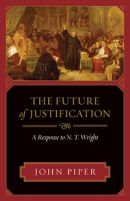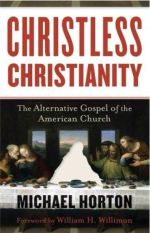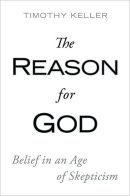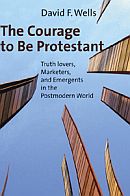 In the past, just doing a cursory reading of some of N.T. Wright’s statements on justification, I thought that I could at least grasp a basic concept of his understanding of this centrally important piece of the Gospel message. Then I picked up Piper’s book. Now I’m even more confused than I was before; I now have some clarity on various points, but I see now I haven’t even scratched the surface of where the man is coming from on justification. Wright’s comprehensive picture of God’s working out salvation in history seems to be coming from a totally different avenue, one the church has never been down in 2000 years. It seems Piper is confused at points to, or sees seemingly contradictory understandings within Wright that he is putting out there at various junctures. While reading Piper’s critique and seeing quotes of Wright’s, I think to myself, “This is a Catholic understanding of justification,” and then at other points, I affirm with Wright that part of his articulation is the traditionally historic Protestant view (i.e. the “Wright” one … get it? Wow, okay I’ll stop … you knew it had to come, ya know, a pun … okay I’m digging a hole).
In the past, just doing a cursory reading of some of N.T. Wright’s statements on justification, I thought that I could at least grasp a basic concept of his understanding of this centrally important piece of the Gospel message. Then I picked up Piper’s book. Now I’m even more confused than I was before; I now have some clarity on various points, but I see now I haven’t even scratched the surface of where the man is coming from on justification. Wright’s comprehensive picture of God’s working out salvation in history seems to be coming from a totally different avenue, one the church has never been down in 2000 years. It seems Piper is confused at points to, or sees seemingly contradictory understandings within Wright that he is putting out there at various junctures. While reading Piper’s critique and seeing quotes of Wright’s, I think to myself, “This is a Catholic understanding of justification,” and then at other points, I affirm with Wright that part of his articulation is the traditionally historic Protestant view (i.e. the “Wright” one … get it? Wow, okay I’ll stop … you knew it had to come, ya know, a pun … okay I’m digging a hole).
Things became much clearer tonight though as I continued reading (as much as it can in waters already muddied by a whole new articulation of a super vital doctrine that has never once appeared in all of church history). One of the things that has really come to bear in my understanding of Wright on justification is the way in which he distinguishes present and future justification. I have never even considered these as two separate, yet related doctrines (nor do I at this point still, just so I’m clear … I believe I’m justified now and will be in the future on the same basis, Christ alone). In the present, says Wright, we are justified by faith alone, knowing that all Christ has overcome and achieved is ours, or in other words, the verdict is in: we are His and have been made His by Christ. Okay that’s comforting. Here it comes though … yet future justification, the justification yet to occur at the judgment seat of God, is faith and the entire life lived in love as a confirmation of true, authentic saving faith. Confused?
With Piper, along with Wright, I concur that our lives should be overflowing with good works (imperfectly) from the supposed supernatural change in our hearts we claim to have had happen in us by God’s working alone, and that if that isn’t happening in us now (or we have no desire or struggle even with such things), we should very well question if God has born us anew at all; that is, is our faith the work of God in us alone to save us and keep us, or is it a false faith we worked up out of our sinful flesh that cannot stand the test of time and trials that will inevitably come (and believe me, they will)? If God has created in us a new heart, made us a new creation by the resurrection of Christ, then what necessarily results from that supernatural work in us is sweetness and fruitfulness, not bitterness and rottenness. I affirm this with Piper and Wright.
Wright is correct to point out that so much of Protestantism has erred in not presenting a balanced view of Paul’s understanding of faith and works, that the two go hand in hand. You cannot have one without the other (James 2:14-26). If God brings about faith in your heart, faith that can only come from Him, a faith that is supernaturally struck by the “beauty of His majesty” and the extent to which He went to bring us to Himself, that faith will inevitably produce good fruit because that is what we’ve been redeemed to. Faith and works are indeed interconnected.
But are they interconnected as the basis for our final justification? Or even our present justification? And yet somehow that understanding in itself isn’t connected with my present justification before God’s throne (the very thing that gives me hope when I’ve sinned and fallen short of the glory of God)? Are the two “justification’s” even distinguishable other than by time? I have a hard time accepting that understanding. It’s like a synthesized version of Protestant and Catholic views on justification almost, patching the former into our present justification and the latter into our future justification. Ultimately though, it comes down to our works in his view, from my standpoint.
I affirm with Piper that in Wright’s view of these two “justification’s” (present and future), the basis or root of both is different. In the present, for Wright, justification is rooted in faith alone through Christ alone. Yet in the future, our justification, the final proclamation of our vindication, that we are God’s covenant people, is based on our faith and our whole life lived … or in essence, our works. I agree that faith “works in love” of necessity and the effect of faith is works, but negate the understanding that our justification, either present or future, rests on faith + works in any fashion. This itself is a perversion of the Gospel of Christ and, as Martin Luther said, sola fide (faith alone) was “the very hinge upon which the Reformation turned.”
I have a hard time accepting the idea that my present justification and my future justification are somehow not the same at the root, that is in Christ’s work alone, appropriated through faith alone, that is all granted by God’s grace alone. The thing that gives me hope, everyday, is that both forms of justification, present and future, are exactly the same and are both rooted in the singular saving work of Christ alone, wrought out upon the cross, sealed and confirmed in the resurrection, and applied by His Holy Spirit to His elect covenant people, and in my particular case. It is knowing I’m secured by His grace, that I’m declared righteous, that gives me freedom to work for His glory and honor, because now no longer am I doing it to be justified (or made right with God), but I do it because I want to out of a love that overflows in my heart (all of which is it self a gift a grace).
If in the present I look off into the future justification of my life at the judgment seat of Christ and I see that His judgment of me is based on my faith and the life I’ve lived (or works), and not merely faith alone, will I not attempt to work harder to make sure “I’m in” the covenant community of God? Does my final justification then not hone in and rest upon what I’ve done in my life, which is defiled and wretched? What hope is that?
You see then, in all reality, if I believed this, ultimately the final verdict of whether or not I go to heaven or hell depends on my obedience, my works, which once again hits at the very distinguishing mark between Protestants and Catholics for 500 years (which Wright, in my opinion is folding on doctrinally): for Catholics, their justification, or right standing before God, comes by faith and works, produced by the infusion of the Holy Spirit into their hearts; for Protestants, our justification is through faith alone, that we are accounted righteous by Christ’s working on our behalf … but we saved through a faith that works in love of necessity … because the faith that God grants His people is of Himself and full of power, effectively changing the course of our entire lives (though we still yet remain imperfect). Ephesians 2:8-10 articulates this Protestant doctrine the best: “For by grace you have been saved through faith. And this is not your own doing; it is the gift of God, not a result of works, so that no one may boast. For we are his workmanship, created in Christ Jesus for good works, which God prepared beforehand, that we should walk in them.” God saves His people by grace, granting faith, which justifies them, and then He moves in them to work for His glory.
I find all of this highly confusing, especially to those who have only a fundamental understanding of what justification is, let alone Wright coming along and making distinguishing marks between two different kinds, a present and a future justification. Wright says the Reformers were confused on the issue and that the conversation between Protestants and Catholics got off on the wrong foot during the Reformation. But I can only say Wright seems to have confused himself 1) about what the Reformers were saying concerning faith and works, and 2) he may be reading too much Second Temple Judaism back into the texts of Romans and Galatians in particular.
But, I am no scholar, nor do I presume to be, nor have I read any Second Temple Judaism from which to make any kind of a standing assertion such as that. I have only grasped a few of the concepts Wright is articulating, or at the very least attempting to, so I could very well be wrong and misunderstanding what he is saying. As you study, one of the things you realize is just how little you know of anything really. If Piper is confused at points, surely I’m going to be. Somehow I feel that Piper’s confusion comes from (possible) contradictory statements and a (possibly) confused N.T. Wright who is uttering them. But maybe I have a bias.
 America has a rich history rooted in the Christian faith, drawing many principles from Scripture. And while this is true, it does not lend us the conclusion that America was a “Christian nation,” even at our founding. Such an assumption is absurd and presents a misguided interpretation of history and a misunderstanding of the nature of how people are converted and saved. Many of the founding fathers were deists, an ideology which runs counter to the Biblical portrayal of an all-sovereign God, which necessarily affects our understanding of the Gospel.
America has a rich history rooted in the Christian faith, drawing many principles from Scripture. And while this is true, it does not lend us the conclusion that America was a “Christian nation,” even at our founding. Such an assumption is absurd and presents a misguided interpretation of history and a misunderstanding of the nature of how people are converted and saved. Many of the founding fathers were deists, an ideology which runs counter to the Biblical portrayal of an all-sovereign God, which necessarily affects our understanding of the Gospel.
 There are so many reviews that have done a fine job of explaining the pros and cons of this book that I don’t feel I need to go into this for very long.
There are so many reviews that have done a fine job of explaining the pros and cons of this book that I don’t feel I need to go into this for very long.


